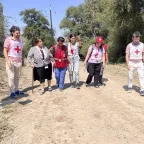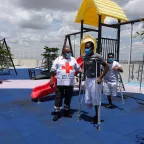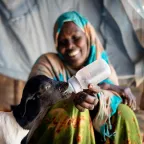Urban warfare and violence
… directly and can be forced to leave their jobs and flee. Run for your life As … basics of life – water, food, health care, jobs, education and decent accommodation – …
… directly and can be forced to leave their jobs and flee. Run for your life As … basics of life – water, food, health care, jobs, education and decent accommodation – …

Humanity, impartiality, neutrality, independence, voluntary service, unity and universality: these are the Fundamental Principles that guide and define our work. The seven Fundamental Principles …

After a life-changing injury, physical rehabilitation is the key to a full and independent life. Helping those wounded in armed conflict to recover functioning and live a full life. Bringing …

… in the infrastructure that supports people’s jobs and livelihoods, such as functioning …

Try one of the following resources:
Created in 1863, the ICRC library, alongside the ICRC archives, provides an indispensable documentary reference on the organization itself and international humanitarian law.
International humanitarian law is based on a number of treaties, in particular the Geneva Conventions of 1949 and their Additional Protocols, and a series of other instruments.
Customary international humanitarian law consists of rules that come from "a general practice accepted as law" and that exist independent of treaty law.